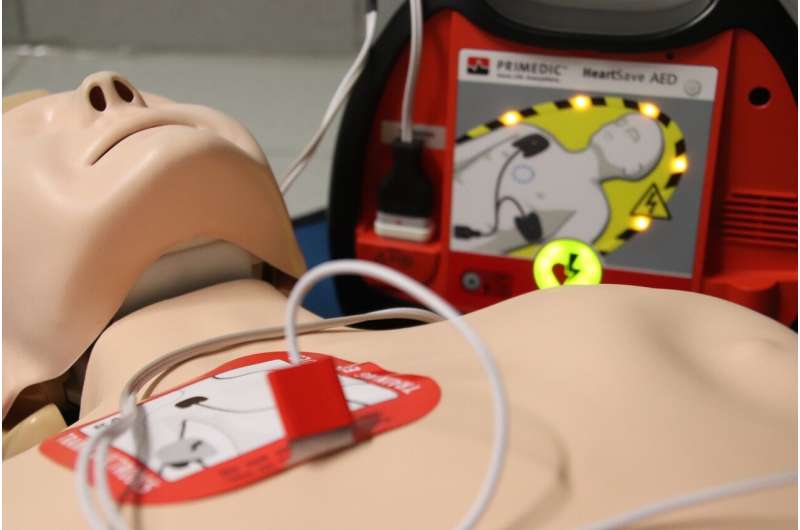Citizen responder CPR and defibrillation programs may improve survival and outcomes from cardiac arrests

Implementing citizen responder programs to answer calls for out-of-hospital cardiac arrests may increase bystander defibrillation in private homes, according to preliminary research to be presented at the American Heart Association's Resuscitation Science Symposium 2019—November 16-17 in Philadelphia.
Most out-of-hospital cardiac arrests occur in residential areas, where automated external defibrillator (AED) devices are rarely available. Researchers in Denmark evaluated whether dispatching "citizen responders" to retrieve publicly accessible AEDs to these cardiac arrests through a smartphone application could increase bystander defibrillation. Citizen responders are volunteers registered with the app to either start bystander CPR or retrieve and use an AED in the event of a nearby cardiac arrest.
The yearlong study, initiated in September 2017, found that citizen responders in the capital region of Denmark arrived before the emergency medical services (EMS) team in 40% of all residential cardiac arrests and performed bystander defibrillation in nearly 50% of all bystander defibrillated cases.
"The findings are observational and cannot describe the full effect of a citizen responder program, however, these results emphasize that citizen responders have the potential to increase bystander defibrillation in residential cardiac arrests," said the study's first author Linn Andelius, a M.D., Ph.D. student at Copenhagen Emergency Medical Services. "Bystander defibrillation increases rates of survival—and survival with good neurological outcome—in out-of-hospital cardiac arrests."
"When we implemented the citizen responder program, we hoped to increase the use of AEDs for residential cardiac arrests, since bystander defibrillation has been low in these areas for many years," Andelius said. "We hoped there would be an increase in bystander defibrillation, and it is impressive that the citizen responders can arrive before the ambulance in 4 out of 10 cases, and most importantly, perform defibrillation in almost half of all bystander defibrillated patients. These preliminary results are truly very promising."














